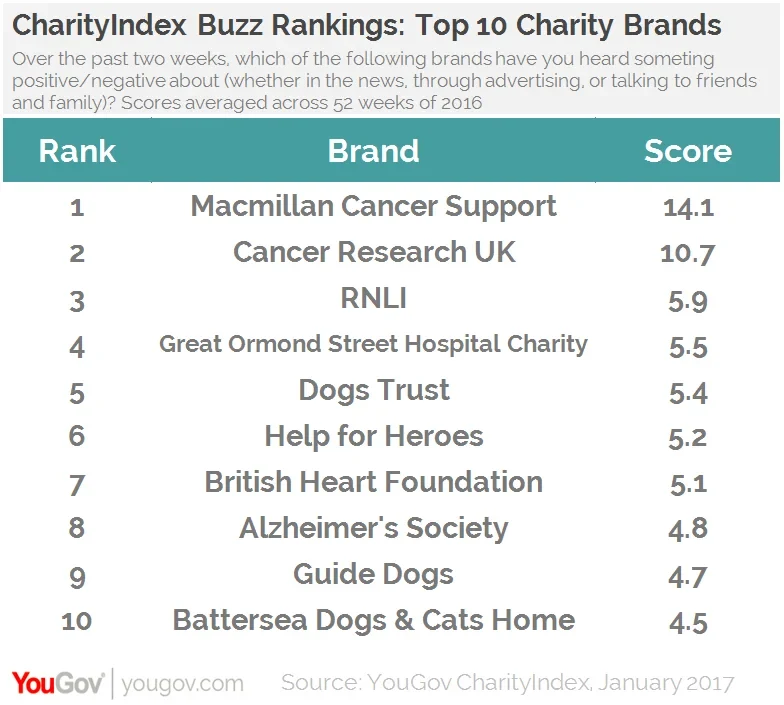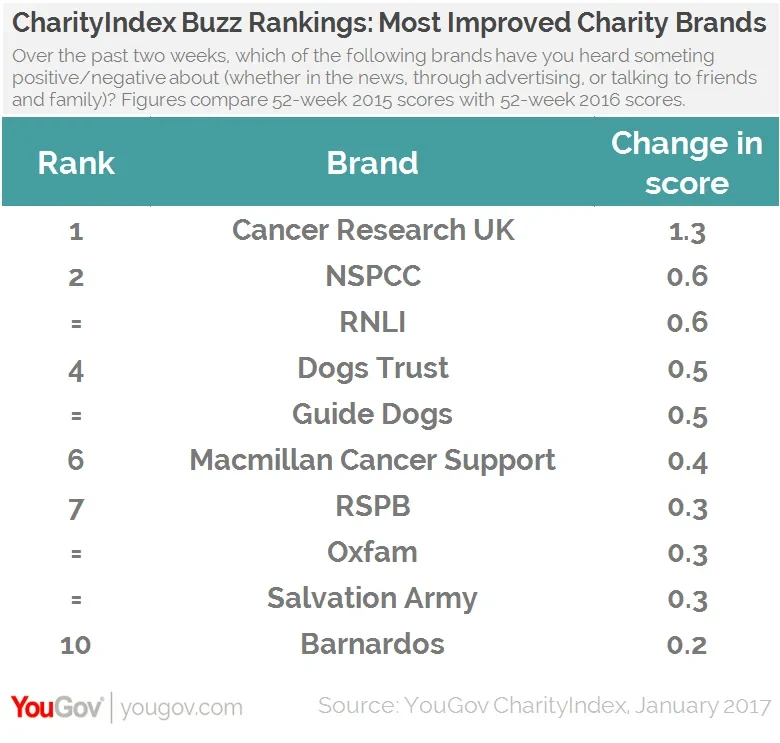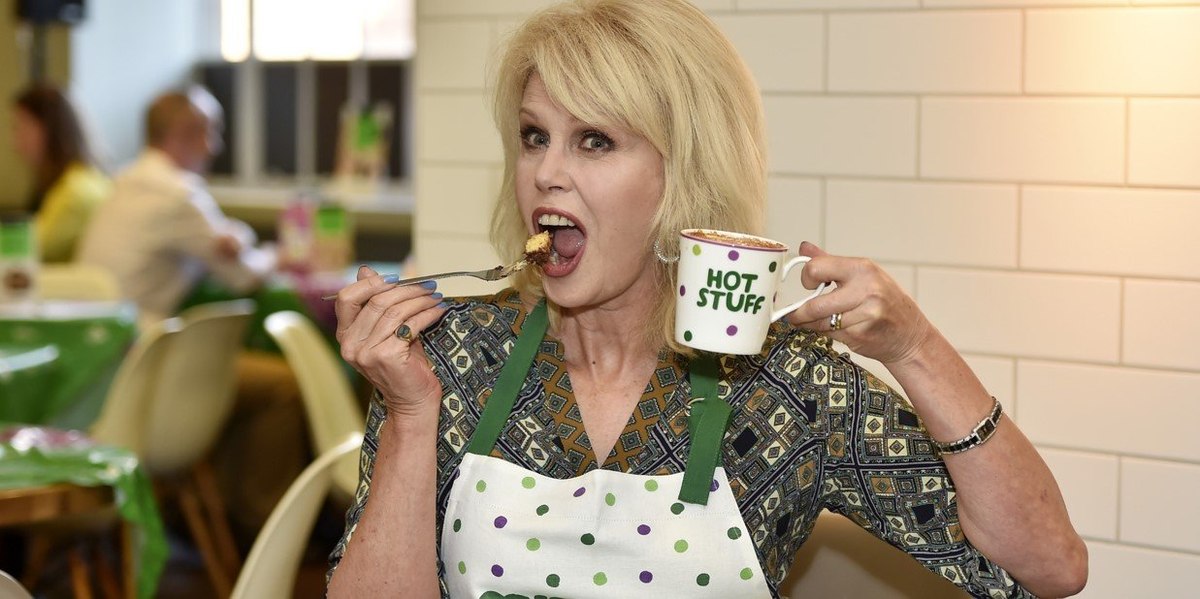Cancer Research UK named as biggest improver
For the fourth year in succession, Macmillan Cancer Support tops YouGov's CharityIndex rankings.
The annual list shows the organisation retains its position ahead of Cancer Research UK in second and RNLI in third (up one place on last year). The Great Ormond Street Hospital Charity is a new entry on fourth (it being the first full year YouGov has measured sentiment for the charity) and Dogs Trust comes in fifth (rising from sixth place in the previous rankings).
CharityIndex measures the public’s perception of charities on a daily basis across a range of measures and YouGov’s rankings are compiled using Buzz scores from across the year. Buzz scores measure whether people have heard anything good or bad about a charity over the previous two weeks.
The remainder of the top ten is made up of Help for Heroes in sixth, the British Heart Foundation in seventh and the Alzheimer’s Society in eighth. The final two places in the list are taken by animal-focussed charities – Guide Dogs in ninth and Battersea Dogs & Cats Home in tenth.
While last year’s list came at the end of a trying 12 months for the sector, this year’s suggests that it has started to recover some of the ground lost in recent times. Yet again Macmillan tops the list, a recognition of the depth and range of their fundraising and marketing activities, including the World’s Biggest Coffee Morning, which saw a notable increase in the number of people talking about the brand.

The charity brand that has experienced the greatest uplift in Buzz over the last year is Cancer Research UK. Its score increased by 1.3 points in the past 12 months, by some way the biggest Buzz improver across the last year. All of the other charity brands in the top ten improvers list have experienced more modest improvements.
The RNLI’s impressive showing is interesting as they have had a quite radical change in the way they market themselves over the past 12 months. As well as some hard-hitting campaigns, they have also adopted an opt-in model when it comes to communications and it seems as though it is paying dividends.

Find out more about YouGov CharityIndex
Image from PA









